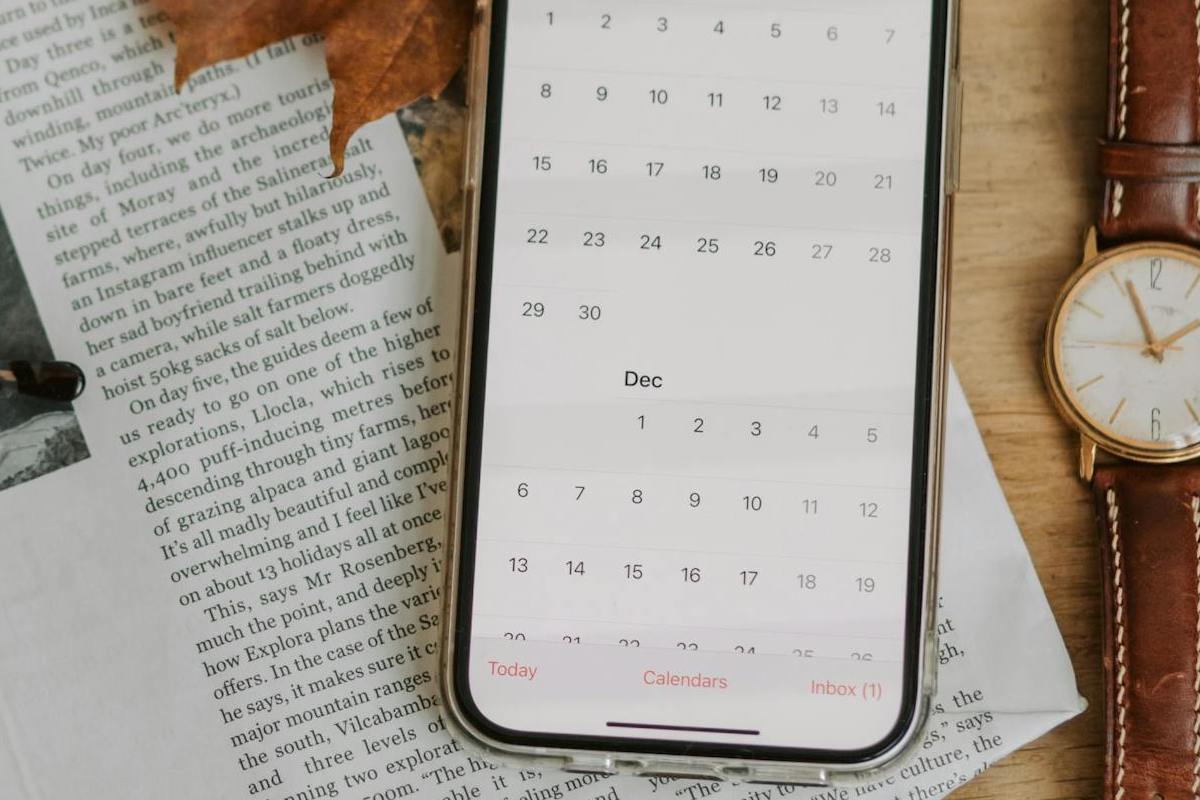

Why is sleep only a priority when we have something significant planned the next day? It could be because you have to catch an early flight in the morning or you have a meeting with your team or investors. Regardless of what exactly is going on, we make it a point to catch plenty of z’s.
The thing is, you should make it a point to get quality sleep every night. After all, when you don’t get enough sleep, you are more likely to get burned out, make more mistakes, and put your health in jeopardy. Additionally, a lack of sleep impairs your decision-making, ability to form long-term memories, and your productivity.
There have been numerous studies that back-these claims-up. For instance, one study concluded that “Sleep duration (both short and long), insomnia, sleepiness, and snoring were all associated with decreased work productivity. Among sleep symptoms, insomnia demonstrated the greatest impact on work productivity. Sleep should be considered an important element in workplace health.”
What’s more, researchers at the University of South Florida and Penn State University found that “[O]n days following earlier wake times, shorter sleep duration, or poorer sleep quality, participants reported more cognitive interference than usual. That is, waking 19 minutes earlier and sleeping 16 minutes less were associated with one additional point on the cognitive interference scale the next day.”
In other words, you need to get a good night’s rest if you want to be at peak productivity. Even losing just 16 to 19 minutes can decrease both focus and productivity. Thankfully, you can avoid this by following these 16 types to improve your sleep each night.
1. Keep a consistent sleep-wake cycle.
I’m talking about circadian rhythms here. Without getting too technical, these are your body’s natural rhythms that determine when it’s time for rest, and when you need to be awake. So, if you want to feel energized and refreshed, then you need to have a regular sleep-wake cycle.
To get started, establish a time when you go to bed and wake-up. Even if it’s during the weekend or on your vacation, keep this schedule as close as possible. And, if you’re exhausted, like after dinner, force yourself to stay up until your bedtime.
If you need to reset your body clock, go camping for a week. The main reason is that it reduces our exposure to electrical light. Doing so will then assist our internal circadian clocks in aligning with solar time.
2. Reduce blue light exposure in the evening.
“One of the simplest, yet hardest, habits to kick is to stop looking at any screens at least thirty minutes before going to bed,” writes Rose Leadem for Calendar. “However, thanks to social media and the internet, this can feel almost impossible at times.” The quick fix? Turn off all of your electronics or, at the very least, put them on sleep mode.
Additionally, all of our gadgets, like laptops, smartphones, and tablets “emit rays of blue and white lights that can prevent our bodies from releasing melatonin, which is the hormone that helps us fall asleep.”
3. Pay attention to what you eat and drink.
Never go to bed feeling either hungry or too full. If possible, you shouldn’t at all — especially fatty, fried, and spicy foods. If you need a snack, stick with options that contain tryptophan, like peanut butter and apple slices. This amino acid releases serotonin, which aids in the sleep process.
Furthermore, stay away from drinking coffee during the late afternoon. Also, steer clear of other stimulants like alcohol or nicotine. Basically, take control of your eating and drinking habits and make them a priority.
4. Exercise daily.
Besides improving your health and productivity, working out will also help you to sleep more soundly at night. Here’s the catch, don’t get your sweat on too close to bedtime. Having an intense workout later in the day will keep you up since you’re raising your blood pressure and increase your heart rate.
The best option is to do your cardio in the morning. The Sleep Foundation reports that this reduces blood pressure, which in turn, maximized deep sleep.
5. Establish a soothing bedtime ritual.
Instead of spending your evenings on stimulating, like playing video games or running, have a more chill night. Listen to classical music, take a hot shower, meditate, read, or write. Any of these pre-sleep activities will help you relax and improve the quality of your sleep.
6. Optimize your bedroom environment.
Your bedroom plays perhaps the essential role in the quality of sleep you get. Ideally, your bedroom should be dark, fresh, and quiet — like a cave. Set the thermostat at between 66-70 degrees and invest in blackout curtains. If noise is an issue, use a white noise machine or air purifier.
Additionally, having comfortable bedding, like your pillows and mattress, can enhance sleep. Other tips would be buying a weighted blanket, keeping your bedroom minimal, and clean.
7. Keep your hands and feet warm.
Although you want your room to be cool, it’s been found that laying next to a warm water bottle to your hands or feet speed up how quickly you fall asleep. Wearing a pair of socks is also effective. However, some people do prefer cold feet.
8. Rethink daytime naps.
There’s nothing wrong with the occasional daytime nap. Use a 20-30 minute power nap during the afternoon, when productivity dips. Try this, and you’ll see it gives you that boost to get through the rest of the day. However, naps shouldn’t be any longer than that. And, they should be avoided later in the day so that they don’t interfere with your sleep schedule.
9. Manage your worries.
It’s happened to all of us at some point. You lay there, wide-awake stressed and anxious about tomorrow. Worrying is a guaranteed way not to get enough sleep. So, you need to curb those thoughts before letting your head hit the pillow.
Resolve any worries or concerns before laying down. Simply writing down what’s on your mind is an effective technique to clear your head. So is jotting down your priorities, looking over your calendar, and having everything prepared for tomorrow.
Moreover, do not discuss any topics that make you feel stressed or anxious. Getting upset about a conversation is a surefire way to get your heart and brain racing.
10. Limit activities in bed.
Your bedroom is only meant for sleep and sex. It’s not your office, dining room, or entertainment center. Doing multiple activities in your bedroom will only distract you from closing your eyes and sleeping through the night.
11. Change your partner’s habits.
What if you have taken steps to improve your sleep, but your partner keeps you up at night? For example, they may be a snorer. In this situation, you may want to invest in earplugs or suggest that they sign up for a sleep study. Besides keeping you awake, this may be a more serious health concern.
If your partner keeps you up because they snore or toss and turn all night, you could sleep in a separate room. And, some research shows that happier couples sleep better together.
12. Evaluate your work schedule.
Mary Rose, Psy.D, a clinical psychologist and behavioral sleep specialist at Baylor College of Medicine, says that “long work hours and busy schedules” are sabotaging our sleep. Evaluate how you can adjust your schedule to promote a healthier schedule that promotes sleep. For example, instead of working until 8 or 9 P.M., be home around six so that you plenty of time to unwind and hit the hay earlier.
13. Avoid lying awake.
What if you can’t drift off or wake-up and can’t go back to sleep? Well, if it’s been more than 10 minutes, it’s for the best if you get up and relax elsewhere. However, you should avoid electronics or reading since they will keep your brain active. Instead, do something like meditating or visualizing.
Related: 25 Simple and Proven Ways to De-Stress
14. Try supplements.
For those nights that you can’t fall asleep, try a natural supplement. The most common is a melatonin supplement. The reason, if you recall, is that melatonin is the hormone that informs the brain when it’s time to rest and head to bed. So, it shouldn’t be surprising that this has been found to help people fall asleep faster and longer. Other supplements you could try are lavender, valerian root, ginkgo biloba, and glycine.
15. Speak to a professional.
“Sometimes managing anxious worry and improving sleep is more complicated than simply turning off your phone or getting adequate exercise,” writes Kathleen Smith, Ph.D. on PsyCom. “Never hesitate to ask for help if you need it from your doctor or a counselor. Sleep problems and anxiety are highly treatable, so consider whom you can recruit today to help you rest your mind and body.”
16. Kick-start your day to ensure better sleep.
It’s no secret that a morning routine is essential for having a productive day. In a nutshell, it sets the tone for the entire day. A strict morning routine means that you aren’t hitting snooze and subsequently rushing out the door. But did you also know that it can also improve your sleep?
If you haven’t done so yet, implement a morning routine. But, try habits like getting up earlier, making your bed, eating breakfast, and exercising. You should also use your mornings to practice mindfulness, review your schedule, read, and tackle your most important tasks.











Albert Costill
My name is Albert Costill and I'm a content marketer at Calendar. If I can help people become more productive in my journey, even better. If you ever have a question about your Calendar or how you can use it - - don't hesitate to reach out. I'm a Calendar Pro.